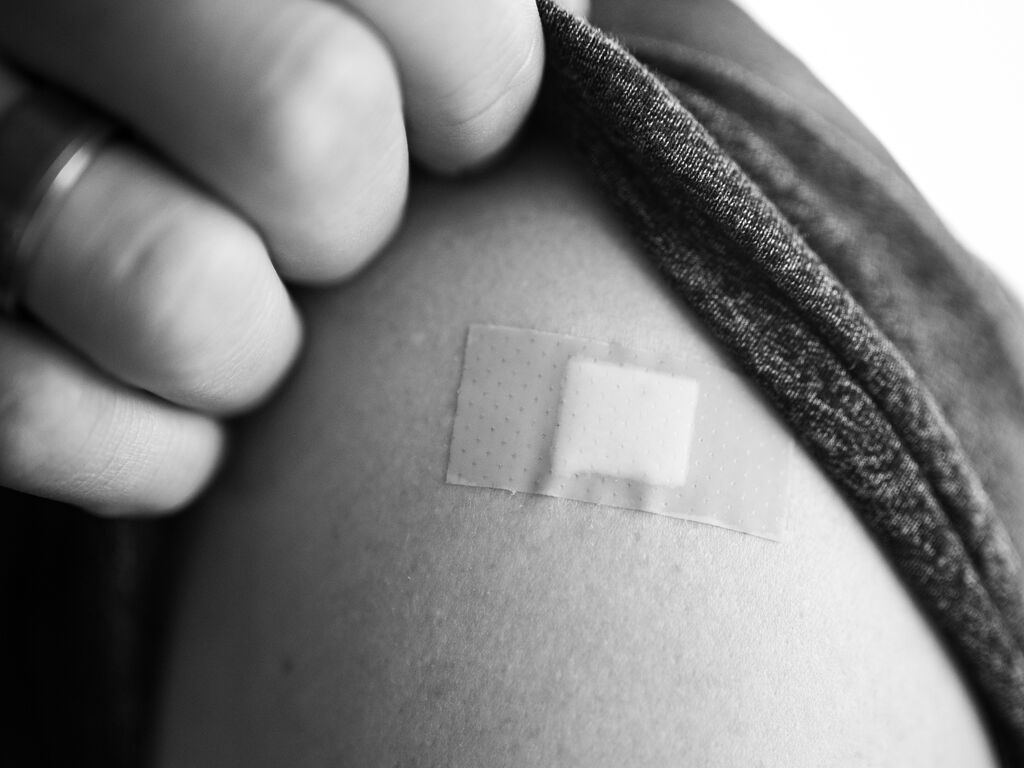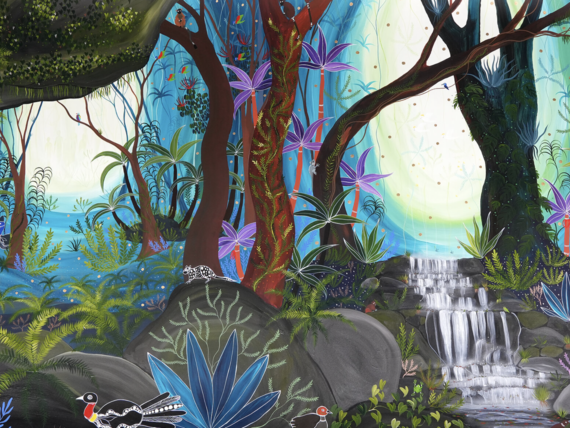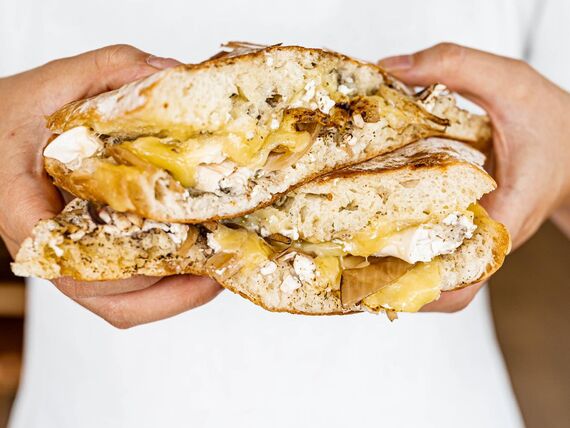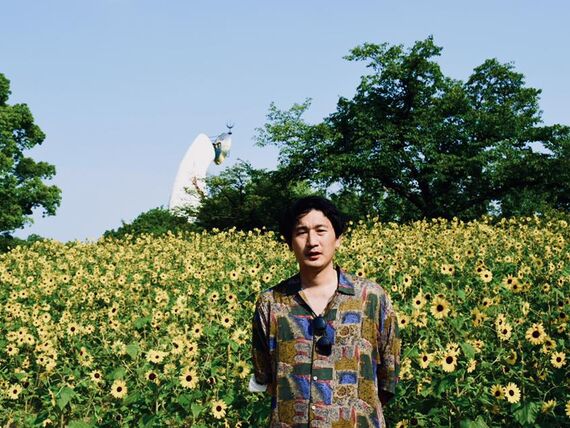
I’m a 23-year-old woman, living in a regional city which has just entered its first lockdown since last year's nationwide stay-at-home order.
About a week ago I received my first dose of AstraZeneca, coincidentally just days before Cairns recorded its first positive case of Delta.
##ArticleBannerAd##
It was the first real COVID scare we’ve had since March last year, with over 500 close contacts sent into two-weeks’ isolation and scores more advised to urgently get tested.
At the time, the local health service said the primary reason we avoided a crisis was because the man was fully vaccinated.
Although he was active in the community for five days, he had very little transmissible virus.
We thought we’d dodged a bullet when his close contacts, including his partner and young child, had tested negative – until yesterday’s news.
A second positive case came yesterday, found to be the man’s taxi driver.
The unvaccinated man in his 60s was infectious in the community for 10 days.
While we wait to see how far this Delta infection has spread, people as young as 18 are being urged to get vaccinated ASAP, even while in lockdown.
Currently, Pfizer stocks remain allocated for people aged 40 to 59 or within certain eligibility criteria.
That means in Queensland, AstraZeneca is the only option for the general population in their 20s or 30s.
To anyone who believes in the fundamental decency of medical science, the importance of getting vaccinated is indisputable.
I’m not here to speak to those who think otherwise. I’m just here to unpack AstraZeneca for smart young people.
Changing advice
For most, hesitancy comes down to which vaccine they are eligible for and recommended to get. The advice has been confusing to say the least.
The Australian Technical Advisory Group on Immunisation (ATAGI), the group of vaccine experts which advise the government, have said Pfizer is the preferred vaccine for under-60s.
This is due to an increased risk of very rare blood clotting events, known as TTS, linked to the AstraZeneca jab in this age group.
Therefore, Australians in their 20s and 30s and not in a high-risk category (such as health workers) were essentially told to wait until more Pfizer arrived on our shores. When will that be? The earliest prediction is October.
But at the end of June, Prime Minister Scott Morrison told GPs across the country they could begin administering AstraZeneca adults under 40. As AstraZeneca can be produced in Australia, unlike Pfizer, the PM’s decision was a bid to boost our vaccination uptake.
A few weeks later, ATAGI also released new advice in light of the worsening outbreak in New South Wales and the severity of the Delta strain. Both factors significantly changed the risk-to-benefit ratio of AstraZeneca, and as such, over 18s in Greater Sydney were urged to ‘strongly consider’ getting any vaccination available to them, including AstraZeneca. The same advice extended to anyone in an outbreak area.
Around the same time, pharmacies across Australia joined GPs in being able to offer AstraZeneca to anyone over 18.
Unfortunately, many have chosen to wait for ‘the good vaccine’ without really looking into the numbers on AstraZeneca and the benefits of being vaccinated sooner rather than later – not only for yourself but for your community.
Crunching the numbers
The risk of developing a blood clot after the first AstraZeneca dose, for under-50s, stands at around three in 100,000, per Australian figures.
The combined contraceptive pill however – which I was prescribed at age 16 to combat acne – sees around two of every 10,000 women per year develop blood clots.
Should I happen to get a clot from AstraZeneca, my chances of dying from it are around three in a 100.
The chance of developing TTS with the second AstraZeneca dose then lowers substantially, according to the UK's vaccine rollout (which is miles ahead of Australia’s and therefore has more data to inform health advice).
The Conversation found you are 56 times more likely to die in a car accident, 32 times more likely to die by homicide, and 16 times more likely to die by drowning or a pedestrian accident than to die from an Astra Zeneca-induced blood clot.
Comparatively, the risk is about the same as being struck by lightning.
Someone between 18 and 39, such as myself, might decide that risk is acceptably low – particularly when compared to the risk of dying from COVID-19.
Gideon Meyerowitz-Katz, an epidemiologist and researcher from the University of Wollongong, told triple j Hack the risk of getting seriously sick from COVID-19 was far greater than getting seriously unwell from the AstraZeneca vaccine.
"You have a one in a million chance of death from the immunisation at our age based on the Australian Federal Government's data, and based on quite a bit of research, you have a one in 5000 risk of death if you catch the disease," he said.
##PQ##
ATAGI’s advice has never suggested people in this age bracket don’t get AstraZeneca. It just wasn’t the preferred option in comparison to Pfizer.
Our inaccessibility to AstraZeneca came down to supply issues and the need to vaccinate the most vulnerable members of our community first.
But that’s changed.
If you also think the risk of TSS is acceptably low – particularly after the federal government said lockdowns won’t end until we reach 80% vaccination rates – here’s some good news.
AstraZeneca is now super easy to book and receive in Cairns.
The process
The first thing to know is that there’s a 12-week gap between the two AstraZeneca doses.
You can decide to receive your second shot after four weeks, which many people are doing in high-risk areas, such as Sydney. However the smaller the gap, the less effective the vaccine, according to ATAGI.
On the other hand, the recommended gap between Pfizer shots is three weeks, with experts currently considering extending that to six weeks.
If you’re in your 20s or 30s and eager to be fully vaccinated by the end of year with optimal protection, your best bet is to book your first dose of AstraZeneca ASAP.
In Cairns, you can do that at pharmacies, GP clinics and dedicated vaccination hubs. No GP referral is needed, and in many cases, walk-ins are accepted.
If you’re living elsewhere, you can fill out this eligibility checker to see a list of vaccination centres near you.
I rang a local GP and was booked in three days later.
The first thing that happened was a doctor consultation. After giving my informed consent, a nurse administered my vaccine.
I was then asked to sit in the waiting room for 15 minutes to make sure there weren’t any adverse reactions. During this time, I read the hand-outs detailing any symptoms to look out for, including in the very rare instance I would develop TTS.
I then returned to work straight after and felt completely fine in the days following.
Why I didn’t wait for Pfizer
Like I said earlier, there’s no guarantee as to when Pfizer will be offered to the general population under 40.
Late last year, Scott Morrison promised all Australians would be given the opportunity to be fully vaccinated by October. We’re currently at about 18% of the total population and 21% of the eligible population.
All of my family live in South Australia and Victoria, and I want to be fully vaccinated by Christmas. Some states have even floated proposals that eventually, only fully-vaccinated people will be exempt from border restrictions. And even though Cairns is unlikely to have an outbreak to the scale of Sydney’s or Melbourne’s, there’s every chance I could pick up the virus while travelling south.
Living in a remote area with a particularly vulnerable population, an already over-stretched healthcare system, and a heavy reliance on tourism, an outbreak in Cairns would be a disaster. I want to play my part in protecting my community as soon as possible.
The efficacy of AstraZeneca is only marginally less than Pfizer too, by just one or two per cent according to the Doherty Institute.
Meanwhile, those waiting for Pfizer or just seeing how it pans out have zero protection against COVID-19.
And no ... you won't be getting $300 to get vaxxed
The idea was raised by Opposition Leader Anthony Albanese.
By principle, the government very rarely, if ever, adopts its opposition's ideas.
PM Scott Morrison has since repeatedly ruled out the proposal.
"This is a serious public health crisis, it is not a game show," he told reporters.
"If they do have hesitancy about vaccine, I am not going to pay them off."
Any questions?
As a journalist, I can help you make sense of complex topics but by no means am a medical expert. Shoot me any questions and I’ll point you in the right direction. You can email me at [email protected].
Further reading
ABC - Under 40 and thinking of getting the AstraZeneca vaccine? Here's what you need to know








